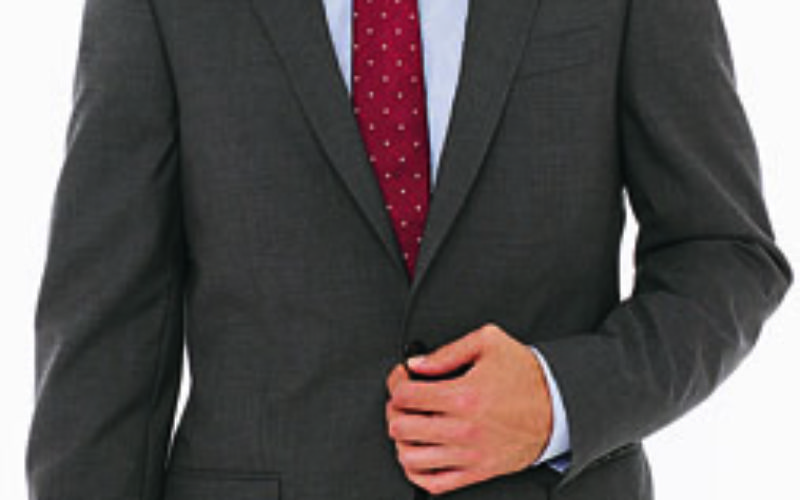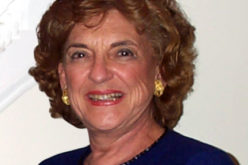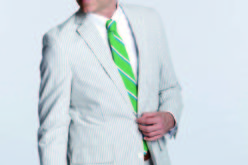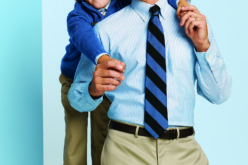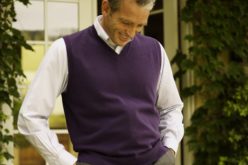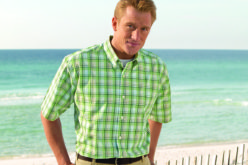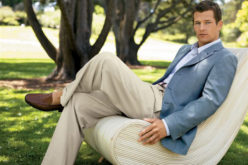Q. What is the correct definition of Business Casual?
A. Time was when this was a question with a rather limited answer. But nowadays, the answer has expanded so it includes almost every variation of men’s clothing except for the dressiest of matched suits (dark pinstriped patterns and double-breasted cuts) at one extreme, and shorts, T-shirts, and flip flops at the other.
In the past, I would have begun the list with a navy blazer as the dressiest example of business-casual, but today I’d say that an even wider range of acceptable items are possibilities, largely depending on your particular office setting.
Do keep in mind that by definition “business casual” is at a dressier level than any other casual, such as going to a ball game, dinner at a friend’s house, or a movie. Business means you are in a work environment and/or should dress the way you would if you were. That is why some extremely casual clothes just do not make the cut.
To proceed from the dressiest (10) to the most casual (1), the basics include:
Above the waist
10. Medium-dark single-breasted suit worn without a tie
9. Navy blazer
8. Sports jackets (solid colors and patterns)
7. Oxford cloth button-down shirts (white, pastels, stripes, and patterns with button cuffs)
6. Not-too-dressy neckties (solid knits and non-boardroom patterns)
5. Sweaters of every variation (sleeveless vest, V-neck, crewneck, cardigan, half-zip)
4. Medium-blue chambray (near denim) shirts
3. Cotton knit polo shirts (solids and stripes)
2. Patterned sport shirts (perhaps bold plaids or checks)
1. Fleece pullovers worn alone or layered (may be too casual for some offices)
Such dressy special touches as French cuffs, cufflinks, tie clasps, pocket squares, and bow ties, are a step or two too formal to fit the business-casual category.
Below the waist
10. Quality, lightweight wool trousers (gray, camel, and/or taupe)
9. Well-pressed, medium-weight chinos
8. Jeans in good condition (optional, the jeans, not the good condition)
7. Bright-colored pants
6. Faded jeans (but not torn) would be too casual for many office settings
5. Leather loafers (preferably in shades of brown, black could be too dressy for certain clothes; wingtip lace-up shoes are too dressy)
4. Deck shoes, desert boots (in some shade of brown/tan)
3. Offbeat shoes, such as saddle oxfords, Western boots, brightly-colored moccasins/driving shoes
2. Good-looking sneakers
1. Silly socks
Colors can also affect “formality vs. casual.” Blues are generally more formal. The emphasis in a smart business-casual wardrobe is usually on neutral shades of brown in trousers, sweaters, loafers, and belt, rather than black, which is dressier. Gray also works as a neutral. This does not mean everything should be bland. Neutrals work nicely with bright “pops of color,” such as yellows, reds, greens, and even purples. Business casual includes brighter colors and bolder patterns than by-the-book traditional business dressing would allow.
Please send your men’s dress and grooming questions to MALE CALL: Lois.Fenton@prodigy.net

